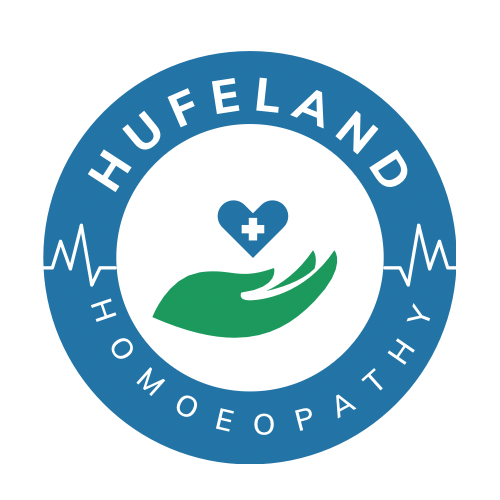- Fathima Roshni N

- Jun 15, 2025
- 4 min read
Urticaria, commonly known as hives, is a skin condition that can cause distressing symptoms. It presents as raised, itchy welts that can vary in size and shape, appearing suddenly and disappearing just as quickly. This blog post will explore urticaria from both medical and homeopathic perspectives, providing insights into its pathophysiology, causes, symptoms, types, prevention, diagnosis, treatment, and management through homeopathy.
Understanding Urticaria
Urticaria is a condition marked by the development of wheals on the skin. These wheals are formed due to the swelling of the dermis and epidermis, resulting from a release of histamines and other chemicals in response to certain triggers. This inflammatory process leads to the classic symptoms of urticaria, including itching, burning, and redness.
Pathophysiology of Urticaria
The pathophysiology underlying urticaria involves mast cells located in the skin. When these mast cells degranulate, they release histamine and other mediators into the surrounding tissue. This release causes vasodilation and increased vascular permeability, leading to fluid leakage and swelling. Understanding this mechanism is crucial for effective treatment and management.
It is also important to note that urticaria can be divided into acute and chronic forms, with each having different underlying mechanisms.
Causes of Urticaria
There are various triggers for urticaria, which can be divided into several categories:
Allergens: Foods (like nuts, shellfish, and eggs), medications (like antibiotics), and insect stings can provoke allergic reactions.
Environmental Factors: Temperature changes, sunlight, and pressure can induce attacks in sensitive individuals.
Infections: Viral and bacterial infections are common culprits, particularly when the immune system is compromised.
Stress: Emotional stress can trigger or exacerbate existing urticaria conditions.
Identifying the specific cause of urticaria is essential for proper treatment and prevention strategies.
Symptoms of Urticaria
The primary symptoms of urticaria include:
Raised, reddish welts on the skin
Intense itching
Burning sensation in the affected areas
These symptoms can vary in intensity and may occur sporadically or persistently, sometimes leading to discomfort and decreased quality of life.
Types of Urticaria
Urticaria can be classified into several types, including:
Acute Urticaria: Lasts for less than six weeks and is often related to allergies.
Chronic Urticaria: Persists beyond six weeks and may occur without identifiable triggers.
Physical Urticaria: Triggered by physical stimuli, such as pressure or temperature changes.
Dermatographic Urticaria: A form where the skin reacts to scratching or firm pressure.
Understanding the type of urticaria present can guide treatment decisions.
Prevention of Urticaria
Preventative measures play a crucial role in managing urticaria, particularly for those with chronic symptoms. Here are some strategies:
Avoid Triggers: Identify and avoid known allergens or irritants whenever possible.
Maintain a Healthy Lifestyle: Proper nutrition, regular exercise, and stress management can bolster the immune system.
Stay Informed: Keeping a diary to track symptoms and potential triggers can help manage and reduce outbreaks.
This proactive approach can significantly reduce the frequency and severity of urticaria episodes.
Diagnosis of Urticaria
Diagnosing urticaria usually involves a thorough clinical history and physical examination. Depending on the initial evaluation, the healthcare provider may recommend:
Allergy Testing: To uncover potential allergens responsible for urticaria.
Blood Tests: To rule out systemic conditions or infections.
Skin Testing: For assessing reactions to specific environmental triggers.
Early and accurate diagnosis is vital for effective management.
Treatment Options for Urticaria
Medical treatment for urticaria aims to relieve symptoms and address underlying causes. Common treatments include:
Antihistamines: Non-sedating antihistamines are typically the first line of defense in easing itching and discomfort.
Corticosteroids: For severe cases, doctors may prescribe corticosteroids to reduce inflammation.
Biologics: Newer treatments, like omalizumab, have shown promise for chronic cases resistant to other therapies.
While medical treatments are effective, many individuals are exploring alternative therapies, such as homeopathy, for a more holistic approach to their health.

Homeopathic Management of Urticaria
Homeopathy offers gentle and individualized treatment options for urticaria. Below are ten common homeopathic remedies often recommended for managing urticaria:
Urtica Urens: Effective for hives and a burning sensation on the skin.
Apis Mellifica: Particularly beneficial if the skin appears swollen and is sensitive to pressure.
Histaminum: Used when symptoms mimic those caused by histamine release, alleviating itching and welts.
Lachesis: Ideal for cases worsened by heat and constricted clothing.
Rhus Toxicodendron: Helpful for hives that appear after exposure to damp or cold weather.
Natrum Muriaticum: Relieves symptoms associated with emotional stressors.
Arsenicum Album: Effective for urticaria with anxiety and restlessness.
Belladonna: Useful in acute hives with a sudden onset and intense symptoms.
Sulphur: A remedy for chronic conditions that are not adequately addressed by other treatments.
10. Pulsatilla: Suitable for hives that are influenced by emotional states or hormonal fluctuations.
When considering homeopathic remedies, it is essential to consult with a licensed practitioner who can help determine the best individualized treatment plan.
Managing Urticaria in Daily Life
Living with urticaria can be challenging, but there are several steps patients can take to manage their condition effectively.
Education: Understanding urticaria and its triggers can empower patients to make better choices regarding their health and lifestyle.
Support Groups: Connecting with others experiencing similar challenges can provide emotional support and practical tips.
Personalization: Tailoring both medical and homeopathic remedies to suit individual needs fosters better management of the condition.
By taking a proactive approach, individuals can improve their quality of life significantly, finding relief through both conventional and alternative therapies.
In summary, understanding urticaria's medical and homeopathic perspectives can provide patients with comprehensive tools for management. Combining these strategies can lead to a more fulfilling life, free from the limitations imposed by urticaria.


Comments